Update: I wrote a simple demo in cython that successfully plays your linked .xm file. It basically is a translation of this c demo code. My code for it can be found on this github page. For getting it to work in Ubuntu, I had to install the libxmp-dev package. Note that everything is hardcoded in at the moment, so it would need to be refactored to be more directly usable in your project.
This is by no means a conclusive answer. I ran into many potential pitfalls along the way that make me doubt if pygame is the right tool for the job here, but I will present what I have found out so far as well as some suggestions.
It looks like the .xm Fast Tracker MODule format is different from your typical wav/ogg/mp3 file in that rather than just playing an array of sample data, you can combine different MIDI instruments and samples together to create you music, like the (sweet) chiptune linked in the question.
It turns out that SDL/pygame, can play such files, but in a rather limited way. Looking at pygame's music module, there is a set_pos function. However, trying to use that gave me a pygame.error: set_pos unsupported for this codec. Interestingly however, I was able to work around this by using pygame.mixer.music.play with the optional start keyword. While start on most file formats is simply the offset in seconds before starting the file (only on the first playthrough of the song), it has a different meaning for MOD files like the .xm file in the question. Apparently, it corresponds to a pattern number in the MOD file. As a result, there are a very limited number of potential starting points that can be used in pygame, based on where each pattern starts in the file.
If you have a specific pattern number you want to start from in mind, then the following code would be sufficient to loop. Note that I use pygame's event system to see when the sound is finished to "loop" the sound file with the appropriate "pattern offset":
import pygame
pygame.init()
pygame.mixer.music.load('zeta_force_level_2.xm')
pattern = 10
loop_event = pygame.USEREVENT + 1
pygame.mixer.music.set_endevent(loop_event)
pygame.mixer.music.play(start=pattern)
while True:
for event in pygame.event.get():
if event.type == loop_event:
pygame.mixer.music.play(start=pattern)
At this point, you might be wondering what exactly are these patterns? If you have ffmpeg installed on your system, you can run ffprobe on your file and get the following output:
Input #0, libmodplug, from 'zeta_force_level_2.xm':
Metadata:
name : zeta force level 2
instrument : by zabutom --
: bye bye computer..
: see you in a week
sample : zeta force level 2
extra info : 20 patterns, 10 channels, 3/14 instruments, 1/14 sample
Duration: 00:01:01.00, bitrate: 3 kb/s
Stream #0:0: Audio: pcm_s16le, 44100 Hz, 2 channels, s16, 1411 kb/s
It looks like there are 20 patterns in this file from which you can choose as your starting location for the loop. To get more information about your particular file, you can open (and edit!) your file in a tool like MilkyTracker and get an output like this:
 There are some tutorials for MilkyTracker online on youtube, but it looks like a pretty complicated piece of software.
There are some tutorials for MilkyTracker online on youtube, but it looks like a pretty complicated piece of software.
There also appears to be a library called libxmp and its corresponding python binding. This should handle the conversion required to "render" MOD file data into a simple PCM array that can be played in a library like pyaudio or any python binding to OpenAL. Either way, it looks like you have your work cut out for you!
